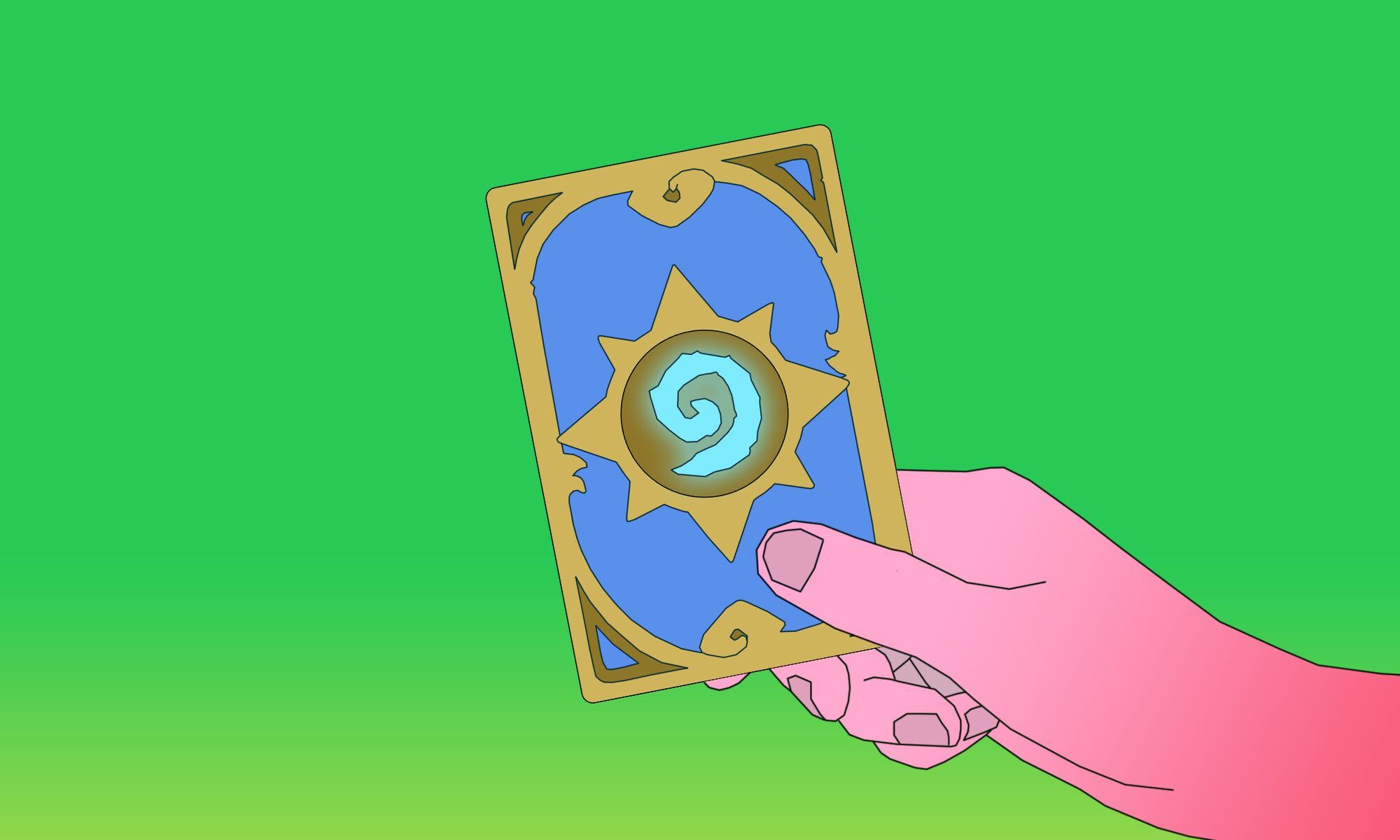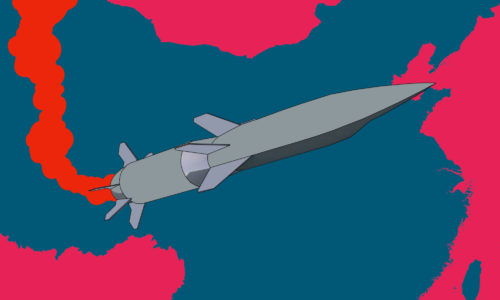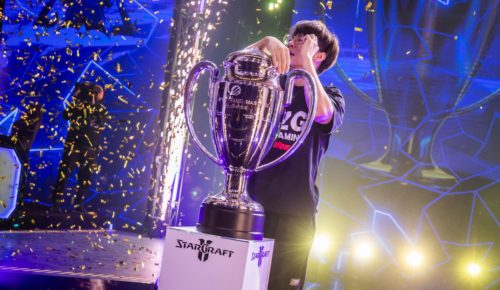Hangzhou Asian Games drops ‘Hearthstone’ after Blizzard’s China exit
Blizzard's premier card game title, "Hearthstone," will no longer be an official medal event at the Hangzhou Asian Games, where esports is set to make its debut as an official medal event.

Jin Uk Kim had hoped that 2023 would be a breakout year for him as a competitive gamer — until an announcement completely derailed his efforts to represent South Korea on the global stage.
A longtime player of Hearthstone, a popular digital card game created by celebrated game studio Blizzard Entertainment, the college student, who plays under the tag “Haze,” competed in a domestic qualifying tournament for the 2023 Hangzhou Asian Games last year. He finished second in the preliminary round, but failed to secure a spot on the national team due to a lackluster performance in the finals.
“Last year’s results were disappointing, so I wanted to challenge again for the Asian Games this year,” Kim told The China Project, adding that he had ramped up his preparations over the past few weeks for potentially another qualifying event organized by the Korea e-Sports Association.
But his dream went up in smoke last Wednesday when sports officials announced the removal of Hearthstone from the Games, where esports is set to make its debut as a legitimate medal event, with the popular title included in the initial list of games to be featured.
As per a press release, the decision was finalized at the fifth coordination committee meeting of the 19th Asian Games, where the Olympic Council of Asia (OCA) approved a proposal for Hearthstone’s exclusion put forth jointly by the Hangzhou Asian Games Organizing Committee (HAGOC) and Asian Electronic Sports Federation (AESF).
In a statement distributed to Chinese news outlets, HAGOC explained that the omission was caused by the breakup between Activision Blizzard and its Chinese publishing partner NetEase. “Because of the expiration of the business cooperation between the two parties, the management team and servers for the game have been terminated. Therefore, the title could no longer meet the preconditions for inclusion in the esports programme of the Hangzhou Asian Games,” it wrote.
In a separate note posted on March 16, AESF stressed that “efforts were made to resolve the issue” with the organization. “However, there was no significant progress in finding a solution,” it said.
Originally slated for September 2022, the 19th Asian Games were postponed due to the COVID-19 pandemic and are scheduled to commence from September 23 to October 8 later this year in the Chinese southern city of Hangzhou. After Hearthstone’s exit, the Games’ esports competition will feature seven video games, including League of Legends, Street Fighter V, PUBG Mobile, and Dota 2.
‘We just didn’t want to believe it is going to all fall apart that fast’
It’s been roughly four months since American game developer Activision Blizzard revealed its failure to renew a 14-year licensing contract with Chinese gaming giant NetEase, which had helped it introduce an array of well-known titles to the country, including World of Warcraft, Overwatch, and Hearthstone, a fast-paced, turn-based strategy card game built upon the existing lore of the Warcraft series.
The shocking announcement of the split was followed by a messy public feud involving tit-for-tat jabs and shade-throwing tactics. Before the partnership officially came to an end on January 23, leaving Blizzard’s services in China suspended and games inaccessible to millions of players in the country, the U.S. company decried NetEase’s unwillingness to temporarily extend the previous agreement for six months so that its Chinese customers could continue playing uninterrupted. In response, the Chinese firm accused Blizzard of blindsiding it with the sudden proposal, saying that it was unfair for the old partner to cast judgment on it when Blizzard was actively looking for its replacement.
For those who closely monitored the developments in the Blizzard-NetEase fallout, Hearthstone’s exclusion from the Hangzhou Asian Games was not a complete curveball. Wataru “posesi” Ishibashi and Sato “glory” Kenta, who were selected to represent Japan in the Asian Games Hearthstone competition, “fully considered that possibly” after the announcement of Blizzard’s China exit, according to Masaya “Trahison” Sasaki, a former Asia-Pacific Hearthstone Grandmaster who played for Japan in the Hearthstone Global Games in 2018. “Nevertheless, we believed in the possibility of the event being held and planned to prepare for it,” Sasaki told The China Project.
Similarly optimistic, Kim said that because Taiwan organized a tournament in early March to re-elect its national esports team for the Asian Games, many South Korean Hearthstone players were hopeful that an additional qualifier tournament will take place as scheduled in the near future. But he admitted that the news wasn’t entirely surprising. “I kind of expected it to be canceled because I didn’t think China and OCA would allow events that the host country couldn’t participate in,” he remarked.
Štěpán “Norwis” Šimek, a 21-year-old semi-professional Hearthstone competitor based in the Czech Republic, told The China Project that although he wasn’t personally affected by the news, he was disheartened by how the decision had impacted his friends in Asia. “I am sure most of us saw that coming, we just didn’t want to believe it was going to all fall apart that fast,” he added.
The future is grim for Hearthstone
Developed on a modest budget by a small team, Hearthstone was an instant success when released in 2014. The digital collectible card game — which requires players to build decks and draw cards from a range of different sets — boasted nearly 100 million players as of 2018 and consistently ranks in the top 20 most watched games on the livestreaming platform Twitch.
But the news regarding the Asian Games arrived at a time when Hearthstone was already suffering from an exodus of competitive players due to Blizzard’s massive cuts to Hearthstone‘s esports program in 2023. According to GameRant, compared to 2022, the number of competitive Hearthstone events is down from a dozen to only seven, and the total prize pool is nearly 80% less this year. The dreary state of its competitive scene was partly caused by the dissolution of Blizzard and NetEase’s partnership, as China often had a big representation at Hearthstone events.
“Many people have left and a few stay, and they are competing with each other under very limited conditions,” Kim said. “In this situation, the Asian Games were an opportunity for the remaining competitive players to make and challenge one goal this year, but it disappeared.”
Šimek, who is currently the third-best performing player in the world based on a new points system and has solid odds to qualify for the 2023 World Championship, said that Hearthstone’s elimination from the prominent sports event has exacerbated his doubts about the game’s future. “It made me very skeptical when it comes to my future in competing in Hearthstone,” he said, adding that the news might spell trouble for the long-term growth of the game’s competitive scene, as tournament organizers might decide to “cut Hearthstone from their game pools and instead focus on other titles.”
“It’s likely that there won’t be any opportunities to play Hearthstone competitively soon, which is depressing considering the time all Hearthstone pros like me invested in the game,” Šimek said.
Having appeared as a demonstration sport during the 2018 Asian Games in Jakarta, esports will be played — for the first time in the Games’ history — as an official medal event in Hangzhou later this year. When announced in 2017, the full-fledged inclusion was hailed by gamers as the boldest step yet toward mainstream recognition of competitive gaming.
Even without Hearthstone, the video game selection at the Hangzhou Asian Games was head and shoulders above the lineup of the Olympic Esports Series 2023, a global virtual and simulated sports competition created by the International Olympic Committee. Beginning with qualification this month and culminating in live finals in Singapore in late June, the event — open to both amateur and professional players — is supposed to reflect IOC’s efforts to engage with gaming communities and potentially include esports in the Olympic Games.
However, the series was met with fierce ridicule in the world of esports, as the IOC — instead of selecting well-established esports titles — opted for simulations of real-world sports and activities, such as chess, archery (in the mobile game Tic Tac Bow), and dancing (with the motion-based music video game Just Dance).
“I am sure the competition will be a disaster because real gamers won’t be interested in watching any of those chosen games,” Šimek said. “I understand that there are moral reasons to not add like shooter games and such, but I thought they would include a few popular games such as League of Legends and CSGO due to viewer demand. Soon, these esports titles will overtake traditional sports in terms of viewership.”
However, he admitted that the chances of Hearthstone becoming an Olympic activity were close to impossible. “Hearthstone wasn’t big enough to make it to the Olympics anyway, I guess. New games are bound to appear in the future to dominate the esports scene.”






